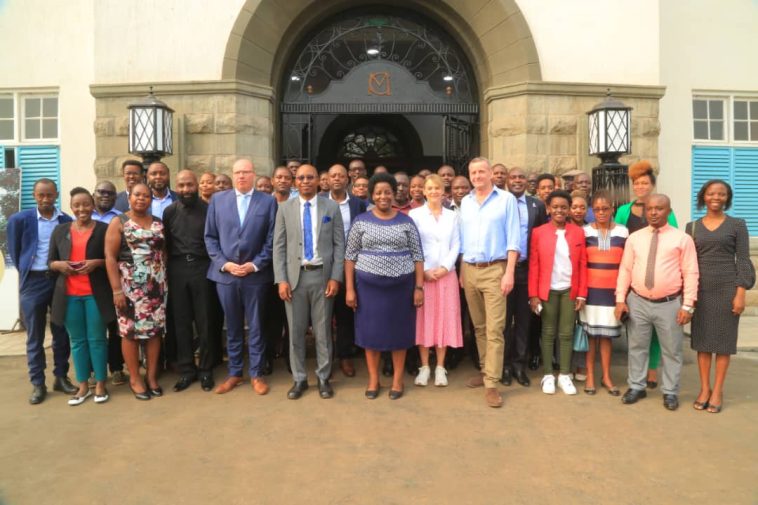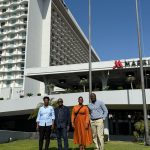A joint international workshop on Somalia under the theme: “Who Knows What on Somalia” was held at Makerere University in January. It was put together by Dr. Edward Kaweesi, Department of Political Science and Public Administration, Makerere University and Dr. Jude Kagoro (University of Bremen).
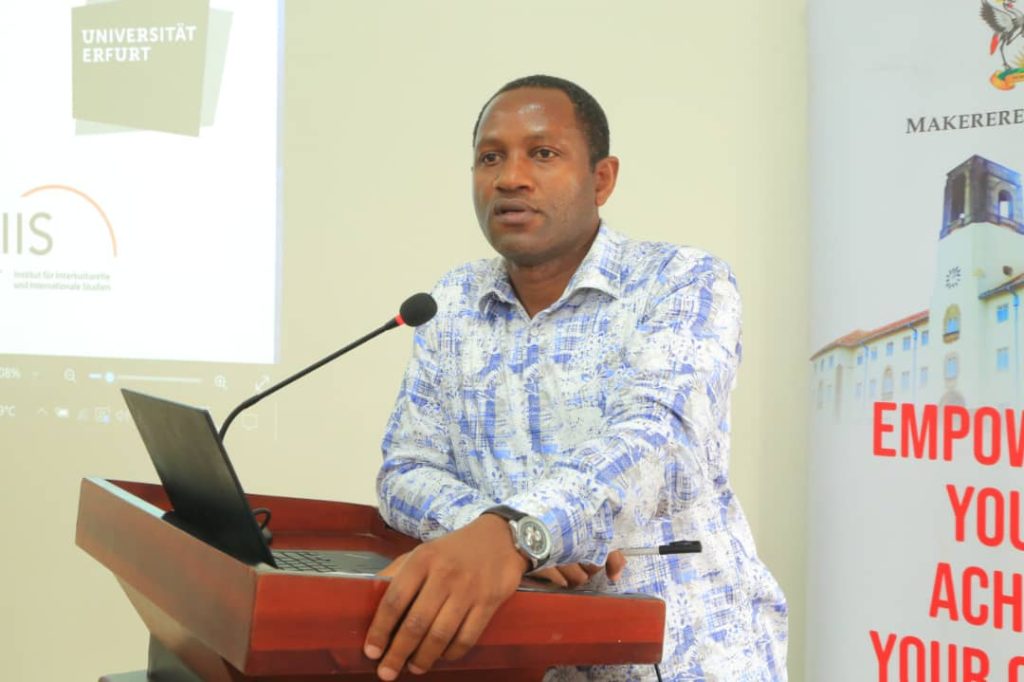
(Dr. Edward Kaweesi, Political Science Department, Makerere University)
Essentially, International Relations in nature, the aim of the international collaboration was to gain a deeper understanding of the conflict in Somalia. It was the first of its kind to be held in Uganda. It bridges the gap between theory and practice in the field of International Relations. There was constructive engagement about the conflict, and better understanding of consequences of the various military interventions in Somalia. Cavendish University, Uganda and Erfurt University, Germany were partners in the workshop. It drew participants from academia, researchers, and students, high ranking UPDF officers who served in Somalia in various capacities and importantly some students at Cavendish and Makerere Univesity who hail from Somalia. The Head of Department of Political Science, Prof. Paul Omach shared opening remarks and was followed by the Principal, College of Humanities and Social Sciences (CHUSS), Makerere University; Prof. Hellen Nambalirwa Nkabala who opened the workshop officially. Prof. Nambalirwa underscored the need to have policy briefs written in addition to academic journals and other publications. Knowledge generated from deliberations at events like this should be put to good use. Policy briefs are easier to be utilized by technocrats and legislators. “We are open to knowledge sharing and partnerships. Dr. Kaweesi and Prof. Omach, thank you for bringing the partners”, the Principal stated.
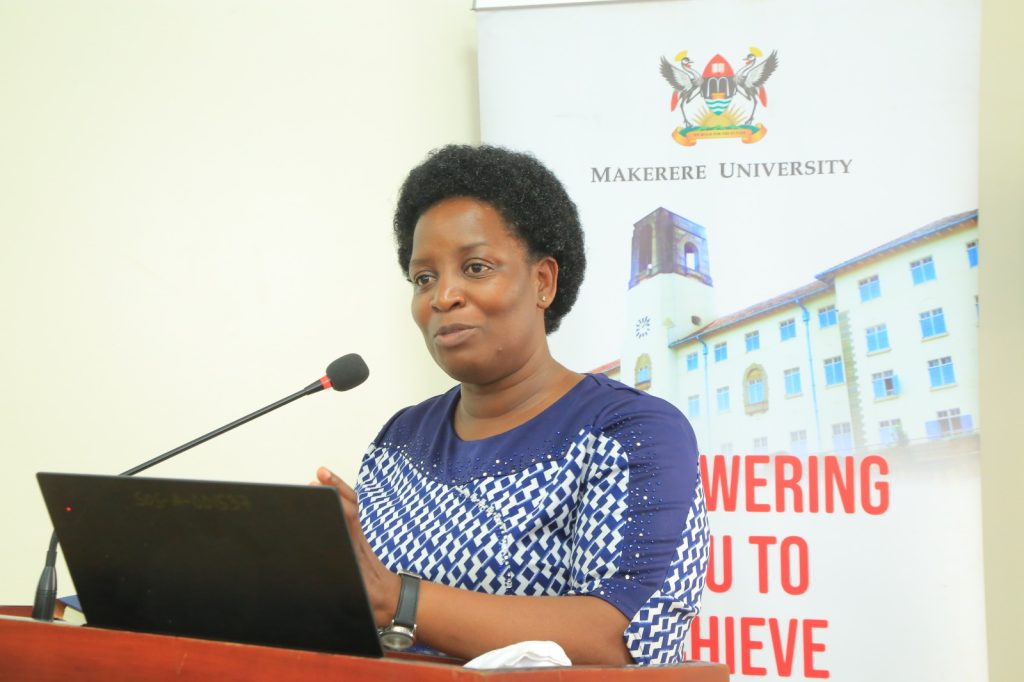
(Prof. Hellen Nambalirwa Nkabala(Principal CHUSS) opens the workshop…)
Dr. Jude Kagoro presented a paper titled; The Complex Cocktail of Foreign Intervention in Somalia: A scrutiny of the endless war against the Al-Shabaab. He analyzed interventions of foreign forces and their implications in Somalia, starting with Operation Restore Hope by the USA in 1991-2 to AMISOM, ATMIS and the current The African Union Support and Stabilization Mission in Somalia (AUSSOM). The paper was foregrounded on the following questions; does change in names of the AU missions make a difference? Why is the ideology in Somalia anti-foreign forces and why are there so many foreign forces operating in Somalia? Why did Uganda deploy troops in Somalia in 2007? Is it really Pan-Africanism agenda by deploying in Somalia as advanced by President Museveni. Are there financial benefits and resources gained by foreign armies in Somalia?
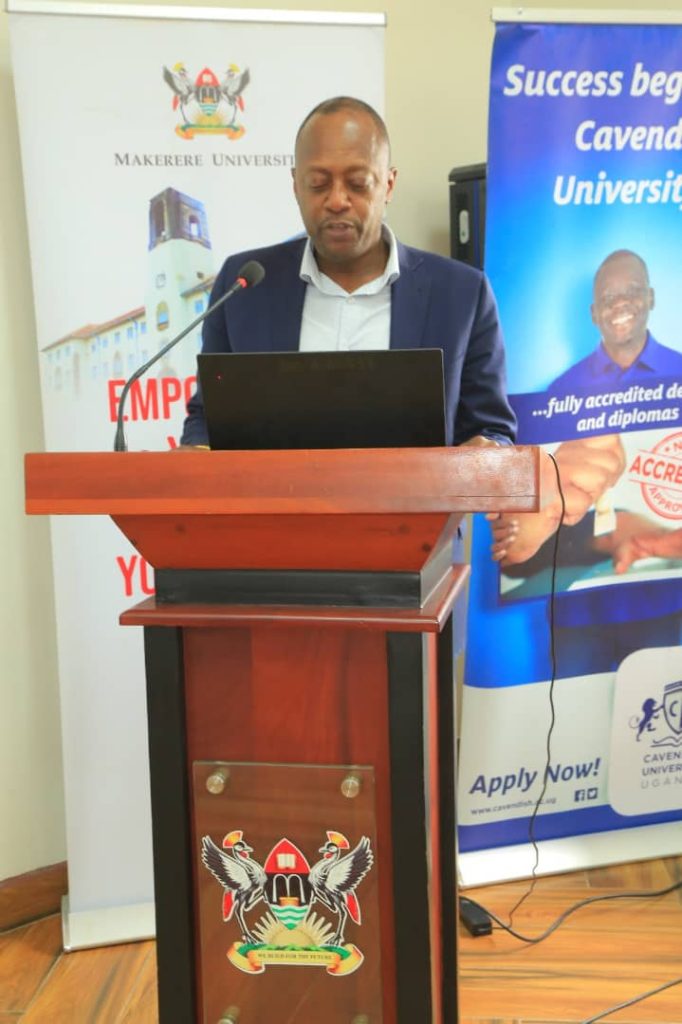
(Dr. Jude Kagoro makes a presentation…)
Brig. Gen. Tingira Irumba (PhD Fellow) and Edgar Mwine (Regional Programme Security Dialogue) Konrad Adenauer Stiftung (KAS), discussed Dr. Kagoro’s paper. They both shared deep insights. Brig. Tingira served in Somalia under AMISOM noted many forces and sometimes competition instead of cooperation. Mwine on the other hand explained that Al-Shabaab is an ideology which can’t be fought militarily. Col. Nelson Aheebwa who was in charge of Civil-military relations emphasized the importance of understanding culture of the people, charm offensive (the battle for the hearts and minds of Somalis on the ground). Col. Fred Wemba discussed the importance of intelligence not only in the military, in the context of the Somalia conflict but in our daily lives too.
Prof. Dr. Sophia Hoffmann from Erfurt University, Germany made a presentation on: Knowledge Production and the German Intelligence Agencies How do researchers in Uganda or in the global South interact with intelligence agencies while accessing information for academic research. Researchers in the global North do not face serious challenges unlike their counterparts in the global South while accessing data from intelligence agencies like the Federal Intelligence Service (BND). With advance in technology, the use of Artificial Intelligence (AI) in intelligence gathering and analysis ought to improve to be able to register success in Somalia.
A student from Somalia noted that the Al-Shabaab have better intelligence than many countries in Eastern Africa, pointing to the Westgate shopping mall attack in Nairobi in 2013 and the Kyadondo terrorist attack in Kampala in 2010 as examples. Al-Shabaab is one of the richest terrorist groups globally according to recent research. There are many complexities in Somalia to grapple with before peace is finally attained. Despite the challenges, hope is not lost that Somalia will be peaceful.
This post was created with our nice and easy submission form. Create your post!


